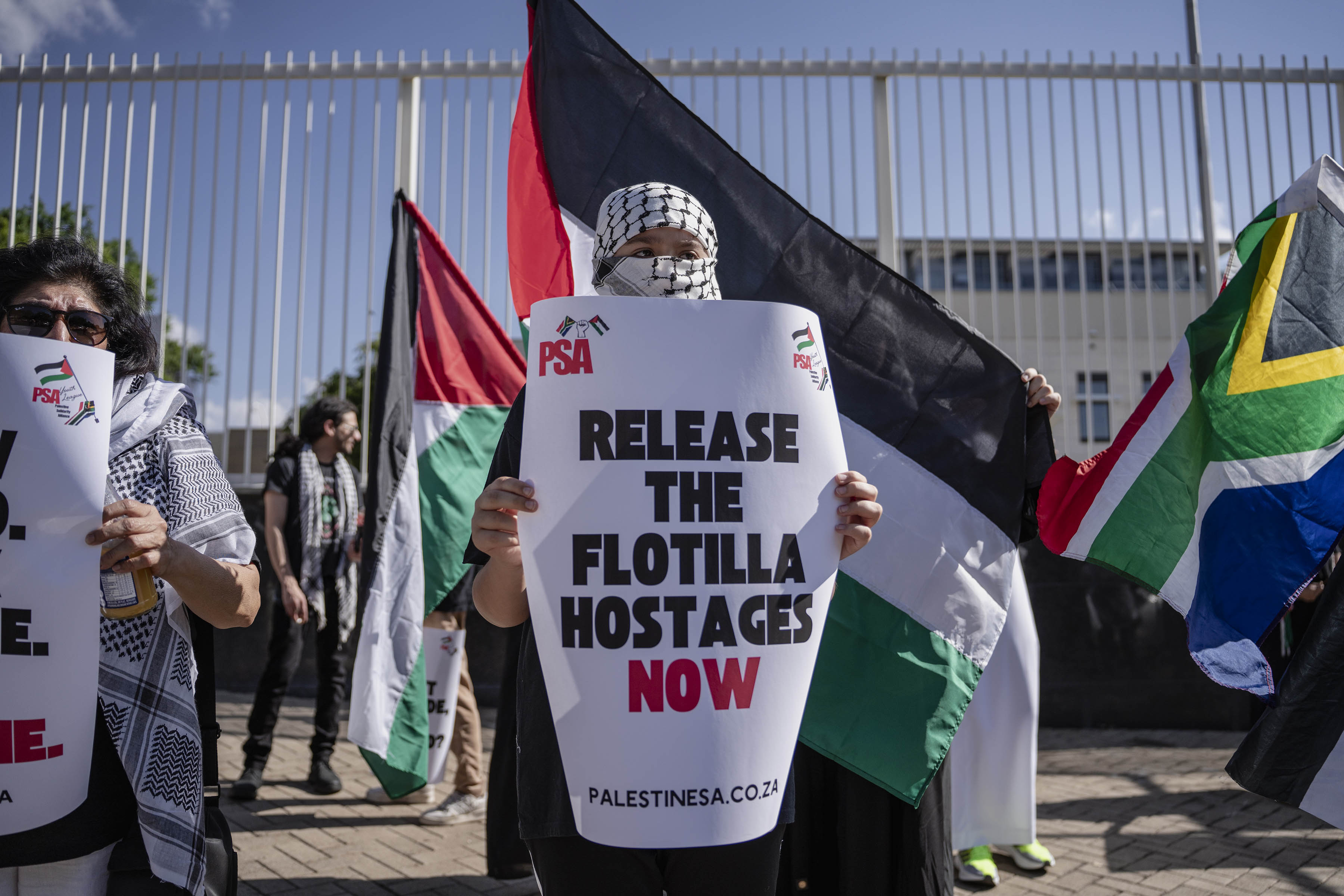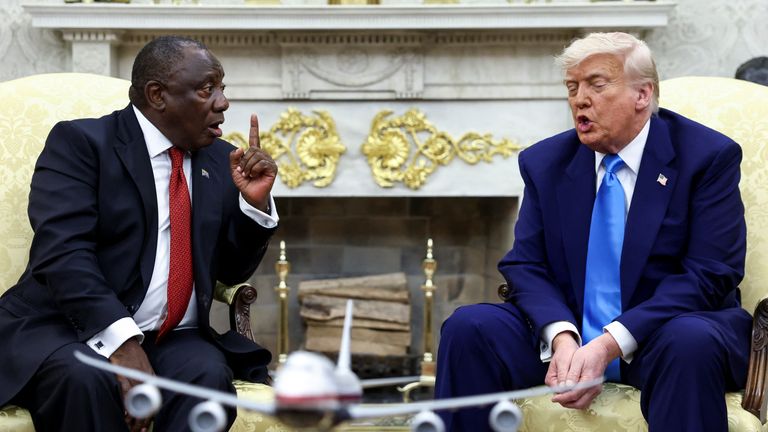
Mass protests broke out in Pretoria on Friday as demonstrators demanded the immediate closure of the Israeli embassy, escalating South Africa’s standoff with Tel Aviv.
- Massive protests erupted in Pretoria, South Africa, urging the closure of the Israeli embassy
- The Global Sumud Flotilla, aiming to breach Gaza’s blockade, was intercepted by Israeli forces, sparking global and local outrage.
- Protesters allege systemic violations of international law, labeling the flotilla’s seizure a crime against humanity.
- This stance risks escalating tensions with Washington, potentially impacting South Africa’s economic and diplomatic relations
A wave of demonstrations swept through Pretoria on Friday as South Africans gathered outside the Israeli embassy, demanding the release of activists detained in Israel’s interception of the “Global Sumud Flotilla” and urging their government to cut diplomatic ties with Tel Aviv.
Protesters, carrying Palestinian flags and chanting slogans against Israel’s military operations, called on President Cyril Ramaphosa’s administration to shut down the Israeli embassy and expel its ambassador.
The immediate trigger for the protests was Israel’s seizure of the Global Sumud Flotilla, one of the largest aid missions seeking to break the blockade of Gaza.
The flotilla of 44 boats carrying about 500 activists was intercepted midweek, with Israeli forces boarding the vessels, detaining volunteers, and transporting them to Israel. By Thursday, the military confirmed it had taken control of all boats, sparking outrage among pro-Palestinian supporters globally, including in South Africa.
Protesters described the flotilla raid as another episode in what they view as systemic violations of international law.
“What we are saying is that it’s not just an abduction of individuals, but a crime committed against humanity,” said protester Nkrumah Kgagudi, echoing the mood on the streets.
Ramaphosa Demands Release of Detained South Africans
President Cyril Ramaphosa in a statement, demanded the release of South Africans detained after Israeli forces intercepted the Global Sumud Flotilla.
The flotilla, carrying humanitarian aid to Gaza, included Nkosi Zwelivelile Mandela, Nelson Mandela’s grandson, author Zukiswa Wanner, and activist Reaaz Moolla.
“This interception reinforces Israel’s continued violation of international law and its infliction of suffering, including starvation, on the Palestinian people,” Ramaphosa said in a statement. He added that the flotilla “represented solidarity with Gaza, and not confrontation with Israel,” urging that its “life-saving cargo” be allowed to reach Palestinians.
South Africa’s pro-Palestine stance sparks U.S. backlash
The protests mirror the South African government’s official line, which has positioned itself as one of Israel’s strongest critics. South Africa has taken Israel to the International Court of Justice (ICJ), accusing it of genocide in Gaza, an allegation Israel rejects.

This bold stance has sharpened tensions not only with Israel but also with the United States.
President Donald Trump, who has reinforced his administration’s alignment with Israel, has already imposed sanctions on South Africa for what Washington terms “supporting anti-Israel schemes.”
According to U.S. officials, Pretoria’s diplomatic offensive against Israel at the ICJ and its increasingly vocal domestic campaigns are undermining U.S. strategic interests in the Middle East.
The Pretoria protests, coupled with the government’s unwavering support for Palestine, could deepen this standoff.
Analysts warn that Washington may respond with additional sanctions, further straining trade and investment ties between Africa’s most industrialized economy and the United States.
More protests, more risks
Organizers have vowed to stage further demonstrations nationwide, with public anger over the flotilla raid feeding into broader dissatisfaction with Israel’s Gaza campaign.
The pressure on the South African government is mounting as activists demand stronger symbolic and diplomatic measures, including the complete severance of ties with Israel.
Yet, these domestic moves may come at a steep international price. South Africa’s growing alignment with the Palestinian cause, while celebrated by supporters, risks escalating its confrontation with Washington.
If new protests maintain momentum, they may provide additional justification for President Trump to broaden sanctions, threatening not only Pretoria’s foreign policy flexibility but also its economic stability.
As South Africa doubles down on its pro-Palestinian posture, it now finds itself caught in a geopolitical crossfire, standing firmly with Gaza while facing the wrath of Washington.












